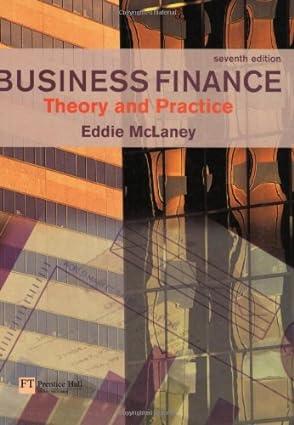An investor has 100 nominal value of perpetual (irredeemable) loan stock, which has a coupon rate (the
Question:
An investor has £100 nominal value of perpetual (irredeemable) loan stock, which has a coupon rate (the rate that the borrowing business is contracted to pay on the nominal value of the stock) of 6 per cent. The prevailing interest rates and the level of risk attaching to the particular loan stock cause the capital market to seek a 6 per cent return from it. Since the loan stock’s return on its nominal value is 6 per cent, the capital market would value the holding at £100 (the nominal value).
If the general level of interest rates were to increase so that the capital market now sought a 7.5 per cent return from this loan stock, its value would fall to £80 (that is, the amount on which the 6 per cent interest on £100 represents a 7.5 per cent return). Thus our loan stockholder would be poorer by £20.
If the loan stock were not perpetual but redeemable at £100 at some date in the future, the price would probably not drop as low as £80 on the interest rate change. The closer the redemption date, the smaller the fall; but irrespective of the redemption position some loss of value would occur. Clearly, the investor would gain similarly from a general fall in prevailing interest rates, but a risk-averse investor (and most investors seem to be risk averse)
would be more concerned with the potential loss than with the potential gain.
Step by Step Answer:






